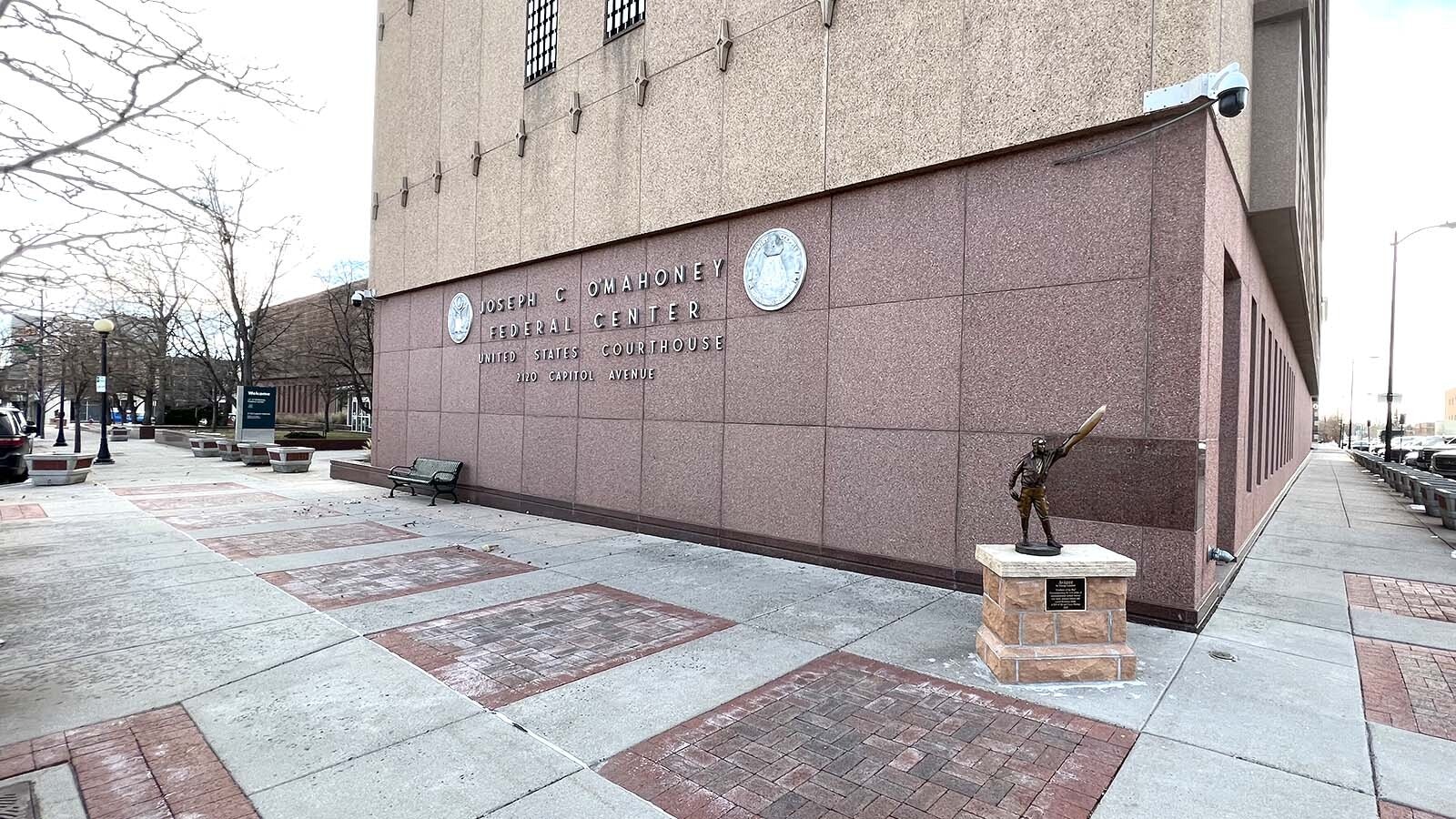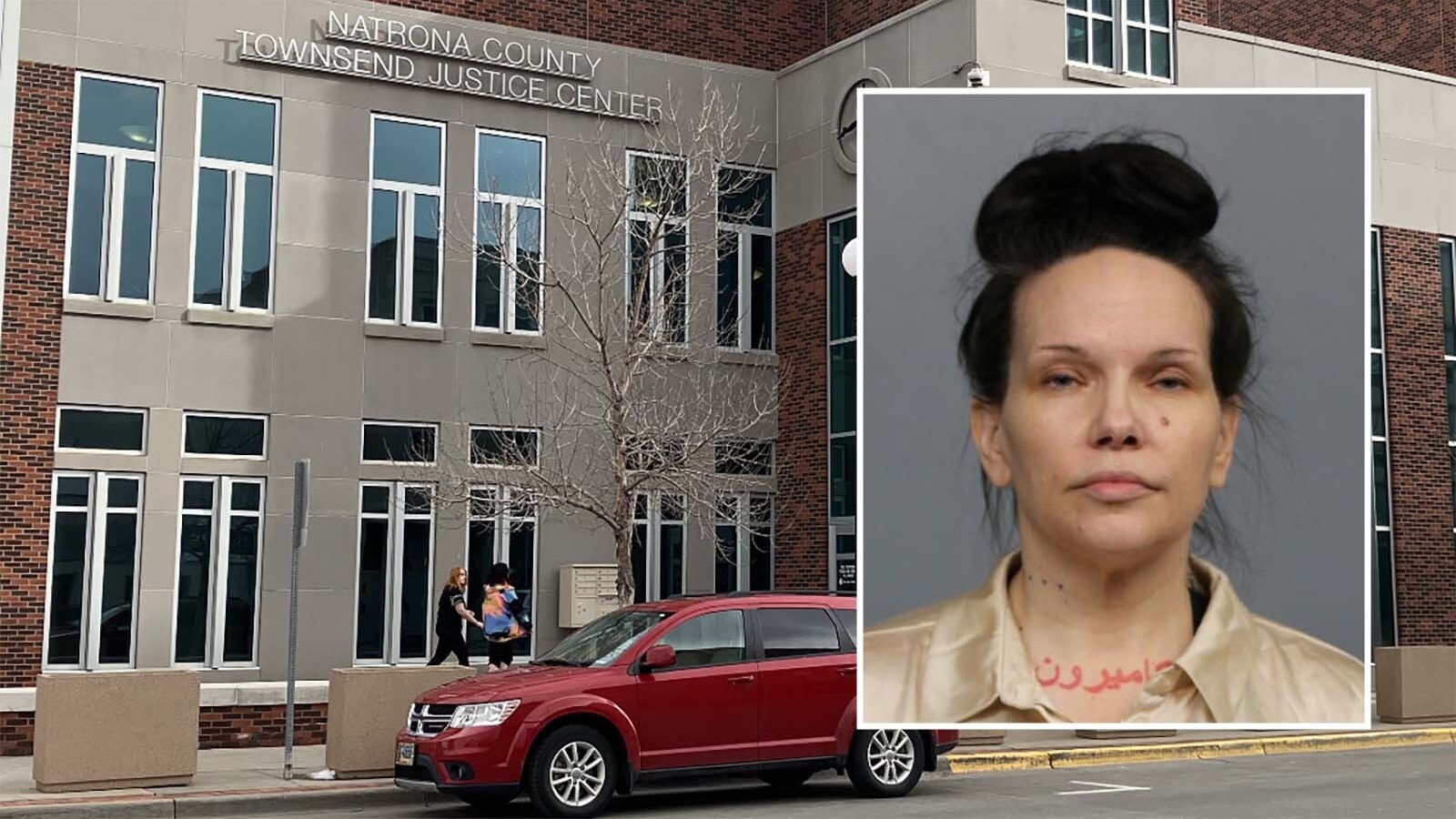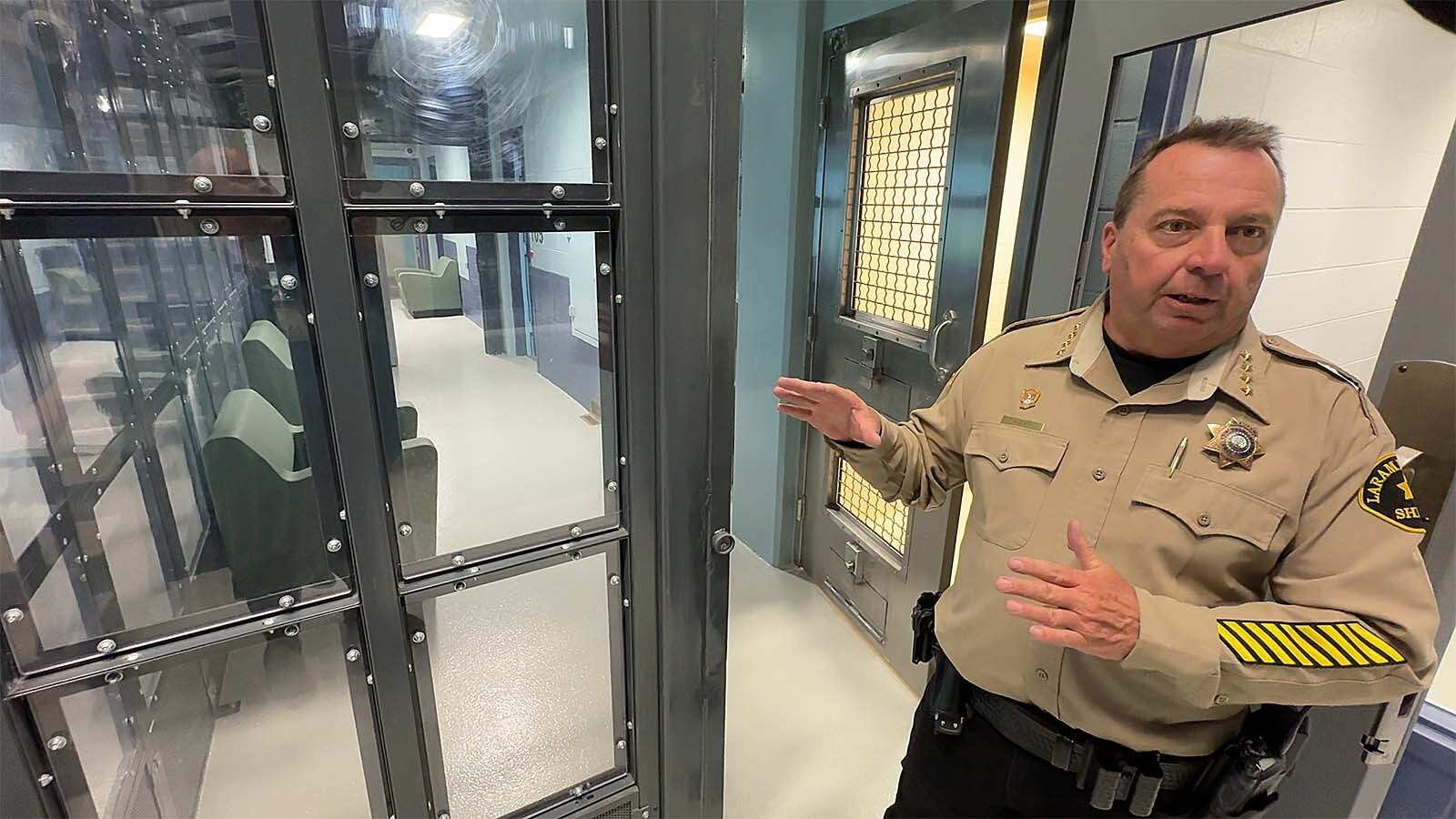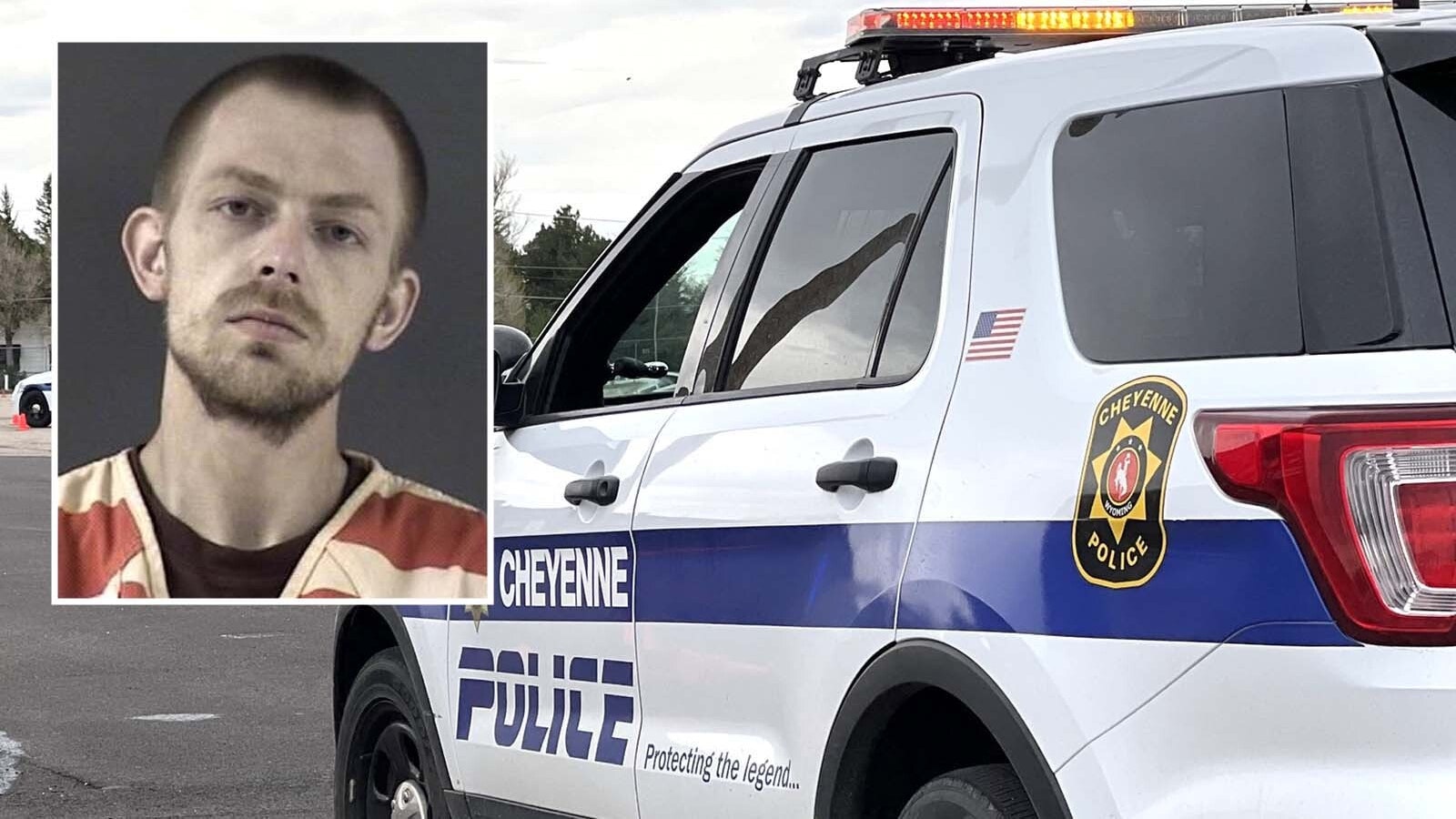A Portland, Oregon, man faces federal charges for counterfeiting after reportedly being caught with money-printing materials during a Wyoming drug bust.
While a Wyoming judge has acquitted Curtis Barnes, 45, of claims he possessed marijuana and meth, he can still get up to 45 years in prison if convicted of having and making bogus currency.
Barnes was indicted earlier this month in the U.S. District Court for Wyoming with possessing altered money and digital counterfeiting images.
The new federal counterfeiting charges follow a drug investigation from last autumn that had too little evidence to make them stick.
Barnes was the passenger in a grey sedan that Wyoming Highway Patrol Trooper JT Dellos caught speeding on Interstate 80 near Cheyenne on Oct. 17, 2023, according to an evidentiary affidavit filed in the case at the time.
Brandon Tyler Espe, who turns 49 this year, was driving.
Dellos smelled raw marijuana as he approached Espe after pulling the car over. He asked Espe to sit in his patrol vehicle while he finished the stop.
Espe admitted to having a marijuana joint in his vehicle, says the affidavit.
Police ran drug-detection dog Reno around the vehicle, and she alerted to drug odors as well, the document says.
When agents searched the vehicle, they found nearly 14 pounds of marijuana plants, 18 pounds of THC wax, about 2 pounds of liquid THC, 7 grams of meth and a trace amount of cocaine, according to the affidavit.
Police arrested both Barnes and Espe.
Not Guilty
Barnes was charged with two counts of felony marijuana and meth possession and one misdemeanor count of cocaine possession.
He struck a plea agreement and planned to plead guilty to the charges early this year, but then changed his mind, telling the court he would go on to trial instead.
On the first day of trial March 26, Barnes’ attorney Brian D. Quinn filed a motion asking the court to acquit Barnes early, arguing that the government didn’t have enough evidence to support its charges.
There were two people in the car, but no evidence delineating that Barnes was the one who had possessed, used or known the whereabouts of the drugs, Quinn argued.
Laramie County District Court Judge Peter Froelicher agreed, acquitting Barnes in an order one day later.
Now The Feds
Pulling from other evidence not listed in the original public affidavit, the U.S. Attorney’s Office for Wyoming charged Barnes with possessing altered money and digital counterfeiting images in a July 29 complaint that became public this month.
In an indictment filed Sept. 18, a grand jury indicted Barnes of the same two charges, which together are punishable by up to 45 years in prison and $500,000 in fines.
The new affidavit, which court documents indicate became public around the time Oregon authorities apprehended Barnes, says the Wyoming Division of Criminal Investigation reached out to U.S. Secret Service Special Agent John Tellman after Barnes’ traffic stop last October.
DCI forensics examiners had found eight $1 federal reserve notes “bleached” inside the car Espe had been driving, says the federal affidavit. Investigators also found a thumb drive containing images of counterfeit U.S. currency in various stages of construction, reportedly.
“I inspected the images of the counterfeit United States Currency and United States Currency security features,” wrote Tellman in the affidavit.
Analysts also found fake-money images on a laptop seized from the vehicle, and Barnes’ emails in use on the laptop, says the affidavit.
Tellman interviewed Espe in the Laramie County Detention Center on Nov. 2, 2023. Espe said he was just giving Barnes a ride from Oregon to Nebraska in exchange for gas money, since Espe was going to Minnesota anyway, the affidavit says.
Espe reportedly said he saw Barnes in possession of a small photo printer in the vehicle and that when he asked for gas money from Barnes, Barnes said he could help with that soon.
‘I’ll Make The Money’
Tellman also interviewed Barnes at the jail that day.
Barnes denied being involved with counterfeiting money, nor did he believe Espe had been. Espe paid him $200 for unidentified goods or services before they left Oregon, but when Barnes tried to spend the money at a Walmart, the clerk rejected the bills as counterfeit, Barnes claimed.
He said he left the two bills somewhere in the car, the affidavit says.
But investigators didn’t list two counterfeit $100 bills in their evidence ledger, says the affidavit.
A federal warrant revealed that the laptop contained a photoshop file for printing $100 bills, the document says.
“Someone used the laptop computer to try and print the photoshop file eight times between October 11 and October 12, 2023,” says the affidavit, citing forensic evidence.
Barnes’ phone reportedly contained a message to a contact that said “ull be glad im working on the lap top,” and Facebook messages from Barnes to Espe, where Barnes allegedly addressed a concern about gas money by writing, “Worst case I’ll make the money.”
Clair McFarland can be reached at clair@cowboystatedaily.com.





